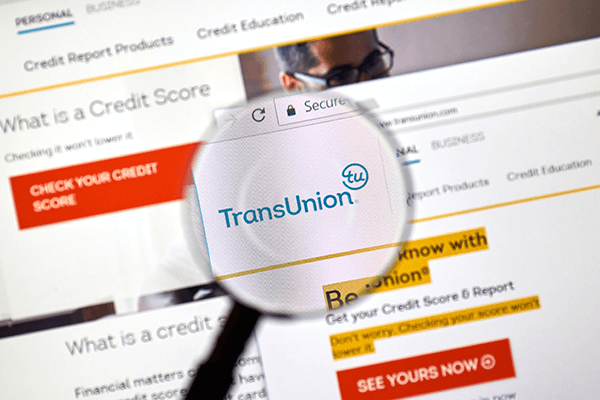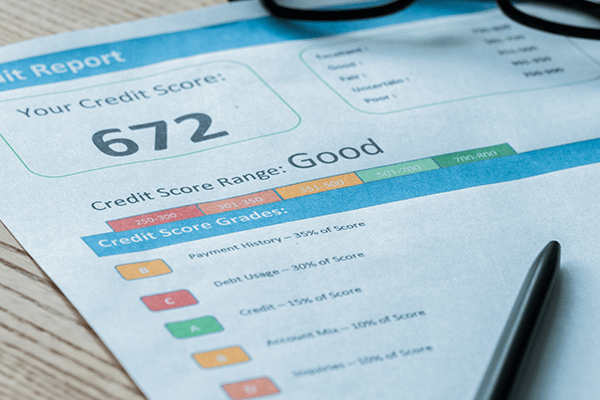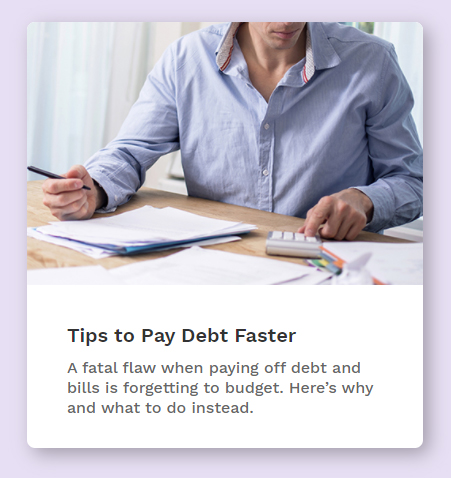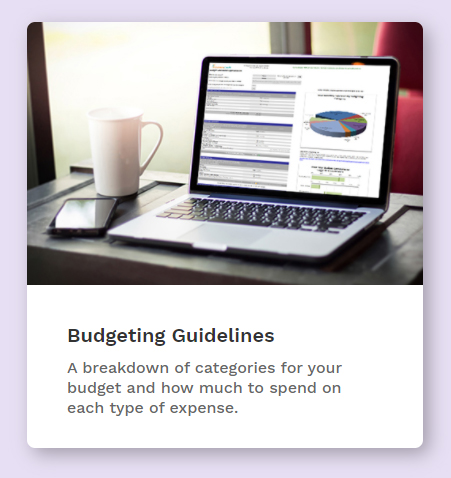Credit
Learn how credit works, how to build or fix it, and credit card tips.
Credit Scores in Canada:
Build, Fix, and Use Credit With Confidence
Credit lets you borrow money now by promising to pay it back later. That promise is what lets Canadians go shopping with their credit cards, take out loans, and get mortgages. It’s also what causes many to go into debt they can’t afford, which can become more expensive than the money they originally borrowed. Using credit responsibly is crucial for your financial health and overall well-being. Explore this page to learn about how credit works, best practices for using and building a credit rating, and credit fix strategies to repair a bad score.
Basics of Credit Scores, Reports & Ratings
The most popular thing to talk about when it comes to credit ratings is the credit score. Like a test score, it can feel like a nice, simple number that seemingly tells you everything you need to know. However, these scores are actually only one part of a credit rating. To really understand how your credit works, we need to back up and start from the beginning.
There are two official credit reporting agencies in Canada: Equifax and TransUnion. Also called the credit bureaus, these are the two organizations you must know about to understand your credit. When you apply for a credit card, take out a loan, or do any other credit-related activities, the lender you’re dealing with will report it to Equifax and/or TransUnion. The credit bureaus then record the information they are given on your credit report.
This report is a summary of how well you’ve held up to your promise of paying back the money you owe. It contains the history of every credit account you’ve had for the past 6-7 years, which can include credit cards, loans, lines of credit, deferred payment plans, and services like cellphone and internet plans. Your credit report also keeps track of those who have inquired about your credit, and there’s a public records section. That section shows if you have any unpaid debts that have gone to collections or if you have any judgments against you. Each of your credit accounts has an individual rating that shows if you’re up to date or late with your payments. Your credit scores are then based on all the information contained in your credit reports.
Basics of Credit Scores, Reports & Ratings
The most popular thing to talk about when it comes to credit ratings is the credit score. Like a test score, it can feel like a nice, simple number that seemingly tells you everything you need to know. However, these scores are actually only one part of a credit rating. To really understand how your credit works, we need to back up and start from the beginning.
There are two official credit reporting agencies in Canada: Equifax and TransUnion. Also called the credit bureaus, these are the two organizations you must know about to understand your credit. When you apply for a credit card, take out a loan, or do any other credit-related activities, the lender you’re dealing with will report it to Equifax and/or TransUnion. The credit bureaus then record the information they are given on your credit report.
This report is a summary of how well you’ve held up to your promise of paying back the money you owe. It contains the history of every credit account you’ve had for the past 6-7 years, which can include credit cards, loans, lines of credit, deferred payment plans, and services like cellphone and internet plans. Your credit report also keeps track of those who have inquired about your credit, and there’s a public records section. That section shows if you have any unpaid debts that have gone to collections or if you have any judgments against you. Each of your credit accounts has an individual rating that shows if you’re up to date or late with your payments. Your credit scores are then based on all the information contained in your credit reports.
Credit Scores
Notice the plural in credit scores? So here’s the deal. Equifax and TransUnion will each give you your own score; you could think of these as the two “official” scores. This is partly because each creditor you’re using (e.g. a bank or credit card company) gets to decide whether they report your account to just TransUnion, just Equifax, both, or neither. So not only will the bureaus give you different credit scores, they can also have different credit reports for you as well. When you apply for new credit from a specific lender, they will use their unique scoring system to evaluate your application and decide how to use the score you’ve been given by either Equifax or TransUnion.
In addition to those “official” credit scores, there are also “unofficial” scores you could get from other companies, who their own unique scores by looking at information on your credit bureau reports from TransUnion or Equifax or both. Remember that any credit that are shown to you as a consumer are only meant to be “educational.” So even if you’ve paid one of the bureaus or another company like Credit Karma to see your score, that won’t be the exact same score a creditor sees when they evaluate your credit application.
Sounds confusing, right? The complexity of Canada’s credit system makes it harder for people to “cheat” on getting a better rating. The point is really that your credit scores are not worth obsessing over. Focus instead on your credit reports from the two main bureaus and make sure the information they contain is accurate. We recommend doing at least an annual credit report check from one or both agencies. You can order these reports for free, and checking your own reports will have no effect on your credit rating.
USA Credit Bureau & Term Differences Canadians Need to Know
It can sometimes be unclear whether credit-related info Canadians find applies to them or Americans. Part of this comes from the fact that Equifax and TransUnion, Canada’s two official credit rating agencies, are business arms of the USA’s three official credit rating agencies: Equifax, TransUnion, and Experian. There was even a brief time when Experian operated in Canada as well. When accessing Equifax and TransUnion online, make sure that you’re on the Canadian websites (.ca) rather than the American ones (.com); that said, if you shop at American retailers or have American credit cards, then you might also have a separate American credit report. Just like in Canada, American credit bureaus will also supply slightly different credit scores. Some are based on the FICO credit scoring system and others on the VantageScore system. VantageScore doesn’t exist in Canada. However, the term FICO score is sometimes used in Canada to simply mean “credit score.”
How to Build Good Credit
Like Rome, good credit isn’t built in a day. Your credit rating and score depend on your credit report, which details the history of how you’ve used credit for the last 6-7 years. This means that aside from spotting a glaring error and having it corrected or getting a collection item removed from the public records section of your credit report, there’s no magical way to raise your credit score 100 points overnight or get a strong credit boost. Instead, the best way to build credit is to be consistent and responsible with credit management. If you’ve never borrowed money before, apply for a credit card with a small limit. Use it for your routine purchases and pay off the balance in full every month. As you keep using this card or other accounts, your creditor will regularly report your activity to the credit rating agencies (TransUnion and Equifax). The more good reports there are over time, the stronger your credit rating will become.
How to Build Good Credit
Like Rome, good credit isn’t built in a day. Your credit rating and score depend on your credit report, which details the history of how you’ve used credit for the last 6-7 years. This means that aside from spotting a glaring error and having it corrected or getting a collection item removed from the public records section of your credit report, there’s no magical way to raise your credit score 100 points overnight or get a strong credit boost. Instead, the best way to build credit is to be consistent and responsible with credit management. If you’ve never borrowed money before, apply for a credit card with a small limit. Use it for your routine purchases and pay off the balance in full every month. As you keep using this card or other accounts, your creditor will regularly report your activity to the credit rating agencies (TransUnion and Equifax). The more good reports there are over time, the stronger your credit rating will become.
As you become more confident in your responsible use of credit, you can also look at raising your card limit or opening new accounts. Having a higher limit while keeping your spending the same reflects positively on your rating. Every credit account you have makes its own regular report to the bureaus, and if they all report that you’re doing a good job, that will look good the next time you consent to having your credit checked.
Credit is about trust, and like trust, it’s hard to gain, but easy to lose. Your credit rating can fall quickly if you begin missing payment deadlines or skipping payments altogether. It can also fall if you suddenly start applying for a lot of new credit all at once. Creditors take these actions as signs that you’re struggling with your finances and may be less likely to pay your bills. The best way to avoid those pitfalls is to stay on top of your budget. Never use more credit than you can afford to repay, stay under about 60% of your max credit limit on every account, and keep a healthy amount of savings. Even though savings isn’t reflected on your credit report, it’s part of every credit application. When you show that you can keep your finances stable without relying on credit, you’ll be rewarded with better access to it.
What Makes an Excellent Credit Score
Ranges Explained
There are many reasons why your credit score isn’t worth obsessing over. However, credit scores can give you a ballpark of how you’re doing. In Canada, scores range from 300-900. If someone’s score is 700, that means that out of 900 people, 700 with that score are likely to repay their debts. If it’s 600, that means 600 out of 900 with that score are likely to repay their debts. Going back to ballparks, Equifax labels credit score ranges as follows:
- 760-900: Excellent
- 725-759: Very Good
- 660-724: Good
- 560-659: Fair
- 300-559: Poor
If you’ve never used credit before or just recently started using it in Canada, your score will be in the 300-559 range. This isn’t because you’re “poor” at using credit – that rating is assigned because you haven’t spent enough time building up a track record yet. In fact, there’s no need to get hung up on any of these labels. Don’t take it from us; TransUnion writes that “a ‘good’ credit score is one that helps you achieve your goals.” Even if 850 or 900 is the highest score possible, that doesn’t make it the best credit score to get. Chances are creditors would give someone the same approval whether they were at 800 or 900, since those are both considered an excellent credit score. However, if an average credit score of around 650 already gets someone the credit conditions they want, then having more won’t necessarily help. In the end, knowing these 3-digit numbers is useful for lenders, but not that useful for consumers. Remember that our credit scores can change daily and we never even get to see our true scores!
Credit Card Tips
Using credit cards responsibly is one of the best ways to build credit. However, getting in trouble with credit card debt is also one of the fastest ways to damage both your credit and – more importantly – your financial wellbeing. There are many tips to avoid credit card debt that can help with this. One big mistake that many Canadians make is to think of their credit as “extra money.” It isn’t. Credit is money that you’re taking from your future self, because that future self will have to pay it back with money you still need to earn.
It is possible to get some money back by using credit cards responsibly. To attract customers, many cards offer discounts, cashback on purchases, time-limited promotions, and other enticing bonuses. However, credit cards also have some of the highest interest rates in the credit industry. This means that if you regularly leave balances on your card past the interest-free grace period, it’s guaranteed that you’re paying far more money for the card than you’re getting out of it. If minimum payments start getting missed, then this problem becomes much worse and can end up ruining your credit rating. Even just paying off a debt by only making the minimum payments can result in you paying back more than four times the amount you borrowed! To get the most value out of your credit cards, fully pay your balances off before any interest-free grace period ends. You’ll still get all the benefits without needing to spend extra.
How to Fix Bad Credit
Your credit can be considered “bad” when it prevents you from reaching your specific financial goals. This might mean you didn’t get approved for a credit card or loan you want, or maybe you got approved but at a higher interest rate than you’re comfortable with. You could have also been denied employment or a rental home based on a credit check. When any of this happens, many people obsess over trying to increase their credit score. However, a bad credit score is only a symptom of a deeper issue.
Rather than fixate on the symptom, the best way to “fix” bad credit is to deal with its cause. If you’re not sure what the cause is, order copies of your credit reports from TransUnion and Equifax. Even if you already think you know what they say, order your reports anyway to double check. Carefully review both of them, taking note of every credit account listed. This ensures that you know exactly what you’re dealing with. If there are mistakes, follow the instructions and fix what’s being reported incorrectly.
How to Fix Bad Credit
Your credit can be considered “bad” when it prevents you from reaching your specific financial goals. This might mean you didn’t get approved for a credit card or loan you want, or maybe you got approved but at a higher interest rate than you’re comfortable with. You could have also been denied employment or a rental home based on a credit check. When any of this happens, many people obsess over trying to increase their credit score. However, a bad credit score is only a symptom of a deeper issue.
Rather than fixate on the symptom, the best way to “fix” bad credit is to deal with its cause. If you’re not sure what the cause is, order copies of your credit reports from TransUnion and Equifax. Even if you already think you know what they say, order your reports anyway to double check. Carefully review both of them, taking note of every credit account listed. This ensures that you know exactly what you’re dealing with. If there are mistakes, follow the instructions and fix what’s being reported incorrectly.
If your problem was caused by falling behind on payments, the best treatment is to get out of debt. Make a budget that lets you aggressively pay off your debt while still keeping up with other necessary expenses. This means figuring out what expenses are not necessary and cutting those out so more money is available for debt payments. If you have more than one credit account you’re behind on, use the Avalanche or Snowball Method to decide the order to pay them off. But here’s the most important thing: whenever you successfully pay off a credit card or line of credit, stop using it until you’re completely out of debt.
Fraud Can Cause Bad Credit
If your credit reports show accounts you never opened or other suspicious information, then it’s possible that you’re a victim of fraud. This will affect your credit because accounts opened in your name are considered yours – whether you actually use them or not. If your credit card info has been stolen, then it’s also possible that you’ll see fraudulent purchases on your statements. Immediately report all of this to the related creditors. Your top priority is to make sure that the fraudulent account is closed, or the stolen credit card is cancelled. After that, look towards preventing this from happening again. Change the passwords for every account you have, review where you keep sensitive info, and consider signing up for credit monitoring. It can help to provide a consumer statement to each credit bureau company with a police report file number. Once dealt with by creditors, fraudulent activities should be removed from your credit reports. If they aren’t, file disputes with the bureaus directly.
What to Do If a Company Offers to Boost Your Credit Score Fast
If any company tells you that they can boost your credit score fast, beware and be careful to understand what exactly they’re offering. Because your score and overall credit rating are based on the last 6-7 years of activity in your credit report, improving it will always take time. Many companies that advertise “fast” credit solutions will actually sell you an expensive credit product. Think of this like a subscription where you pay for nothing. As you make your payments, the company will update the credit monitoring agencies Equifax and TransUnion, which can have a positive effect on your credit. However, you could receive the same benefit by just using any credit product responsibly – and actually get something for your money too. One credit product you might want to use for repairing your credit rating is a secured credit card, which removes the risk of falling into more debt.
What to Do If You Have Too Much Debt
If your credit card payments have gotten out of hand or you owe more than you can realistically repay, there are debt relief options that might help. If you have debts that have gone to collections, there are things you’ll want to know that make it easier to deal with your creditors. While there is no one solution that works best for everyone, there will be a solution that works best for you. Before committing to any option, do your research and get professional opinions from several sources – especially if you’re considering a consumer proposal or bankruptcy. One professional opinion to get is that of a non-profit credit counsellor. A non-profit credit counsellor can help you review your situation for free and isn’t paid a commission to push you towards any one specific option. Set up a free and confidential appointment by calling 1-888-527-8999.
Here’s a tip that will save you a lot of stress: if you do start a debt repayment plan, don’t look at your credit score until the program is finished. Most effective plans will actually cause your score to drop or change erratically while in progress. This is because the process is a lot like surgery, expect for your credit. It won’t look pretty while it’s happening, but once successfully completed, the good results will show.
Get Credit Help
If you have more questions about anything credit or debt related, give us a call. We’re happy to help in any way we can. With the right information and a plan to move forward, you’ll be well on your way to achieving your financial goals. Speaking with us is always free, confidential, and non-judgmental.
Related Topics

Tips to Pay Debt Faster
A fatal flaw when paying off debt and bills is forgetting to budget. Here’s why and what to do instead.
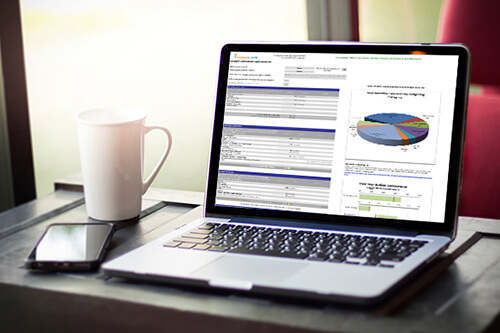
Budgeting Guidelines
A breakdown of categories for your budget and how much to spend on each type of expense.

Credit Counselling
Are you curious about what credit counselling is or how it works? Here’s what you need to know.
